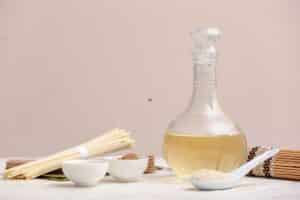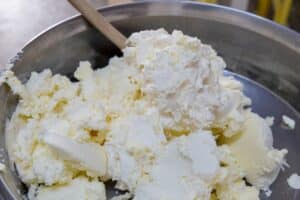If you run out of coconut sugar, there’s no need to worry—coconut sugar substitutes like light brown sugar offer a similar taste, and sucanat ensures you receive some nutrients.
In fact, coconut sugar is a more nutritious sweetener than standard sugar because it contains iron, calcium, zinc, and other nutrients derived from the coconut palm tree. It also helps prevent low blood sugar and provides a small dose of insulin, beneficial for those with diabetes.
We considered the nutritional value of coconut sugar when looking for substitutes. We also took into account its texture, color, and how available the alternatives are. So, read on to learn how to rescue your recipe when you run out of coconut sugar.
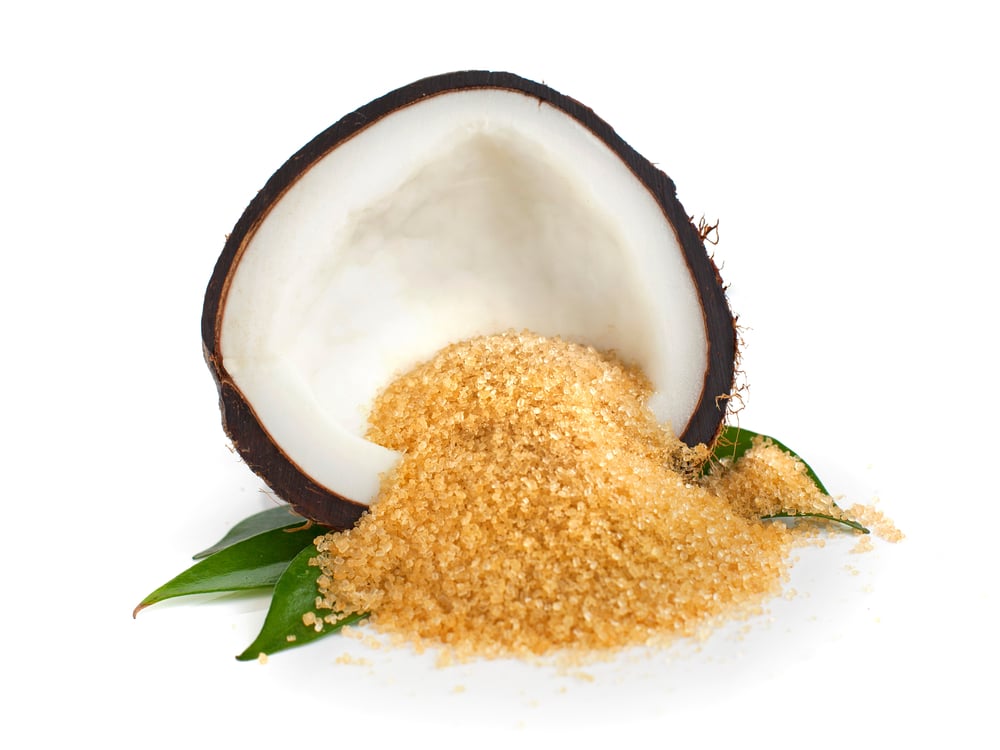
Recommended Coconut Sugar Substitute
1. Light Brown Sugar
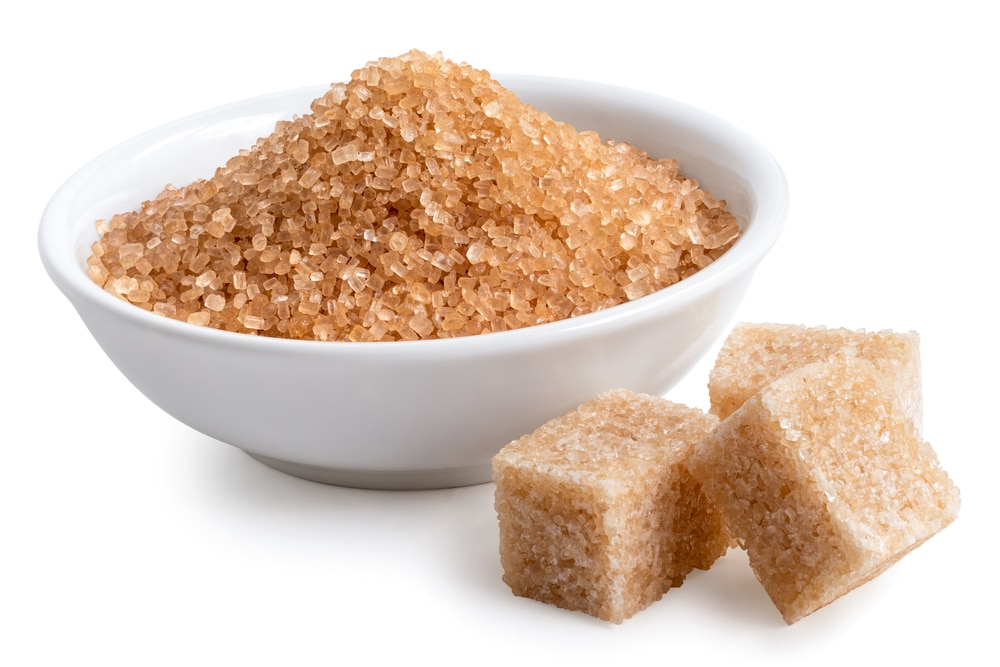
Light brown sugar is an excellent substitute for coconut sugar because it won’t alter the color of your recipe any more than coconut sugar will. Furthermore, it shares a similar texture and flavor.
You might be wondering—is it okay to use dark brown sugar instead of the light brown variety? Technically, yes. However, brown sugar of all shades contains two ingredients: Refined white sugar and molasses.
The amount of molasses is what differentiates the different types of brown sugar. For example, while dark brown sugar has a molasses content of 6.5%, light brown sugar only contains 3.5%.
Therefore, if you only have dark molasses on hand, be aware that whatever you use the sugar in might take on a molasses-like flavor.
You can use light brown sugar in any recipe that calls for coconut sugar. However, there’s a couple of items you should keep in mind. First, you shouldn’t pack down the brown sugar when you measure it. Secondly, light brown sugar is sweeter than coconut sugar.
Therefore, consider using 2/3 cup of unpacked light brown sugar for every one cup of coconut sugar your recipe calls for. That said, it’s okay to use this sugar in a 1:1 ratio—it’s entirely dependent on how much of a sweet tooth you have.
2. Raw Honey

If your reasoning for using coconut sugar is because you appreciate the nutrition that comes with it, then using raw honey is an excellent alternative.
As its name implies, raw honey doesn’t undergo any processing before making its way to your recipe. It contains traces of pollen and bee propolis, making it a good source of antioxidants, amino acids, and vitamins.
One of the most notable distinctions when using raw honey to substitute coconut sugar is that honey is liquid and coconut sugar is solid.
For this reason, we recommend using raw honey as a coconut sugar substitute if you’re looking to sweeten drinks such as tea or lemonade.
Avoid going overboard if you choose to use raw honey in a recipe calling for coconut sugar; using one-quarter the amount of honey as you would coconut sugar usually strikes the right balance.
Not only will that prevent you from over sweetening your recipe, but it’ll also prevent issues with making your dish too liquid.
To give you an idea of the difference, one tablespoon of honey contains about 17 grams of sugar. On the other hand, a tablespoon of coconut sugar has 16 grams of sugar. The 16-gram amount is on par with traditional sugars.
Can’t find honey? Maple syrup might be a good substitute.
3. Sucanat
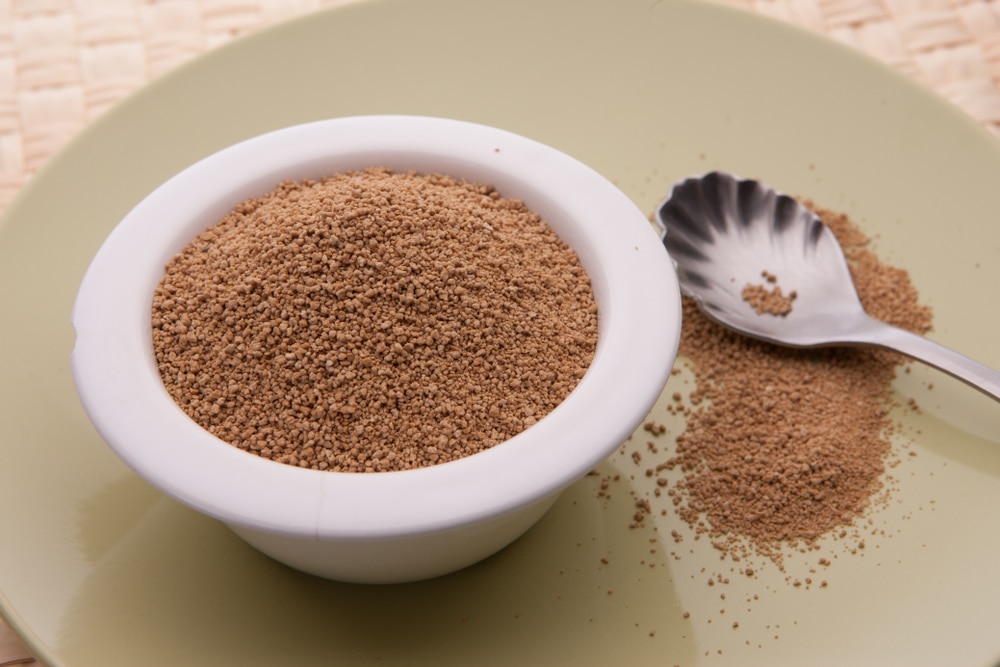
We might be introducing you to the word “sucanat” for the first time, but you’re undoubtedly familiar with where this sugar comes from—sugar cane.
The attraction of sucanat is that manufacturers don’t process it as much as sugar. Therefore, it shares this quality with coconut sugar. Furthermore, sucanat shares a similar brown color with coconut sugar. It also has a slight caramel taste.
Sucanat only has an 88% sucrose content, compared to refined sugar’s 99%. This difference is what causes baked goods to have a lower consistency.
That said, you can use the same amount of sucanat as a recipe calls for in coconut sugar. Because of how coarse sucanat is, you may find it helpful to pass it through a food processor.
That way, your recipe will better absorb the sugar, helping to distribute the sugar more evenly.
An advantage of sucanat is that it makes for an excellent sugar topping on baked goods.
Therefore, if you have muffins or any other dessert that you want to adorn with a crispy, sugary top, it does well with mimicking this feature of coconut sugar.
Like coconut sugar, the less processed nature of sucanat means that you’ll receive some nutrition such as calcium and iron when you consume it.
4. Date Sugar
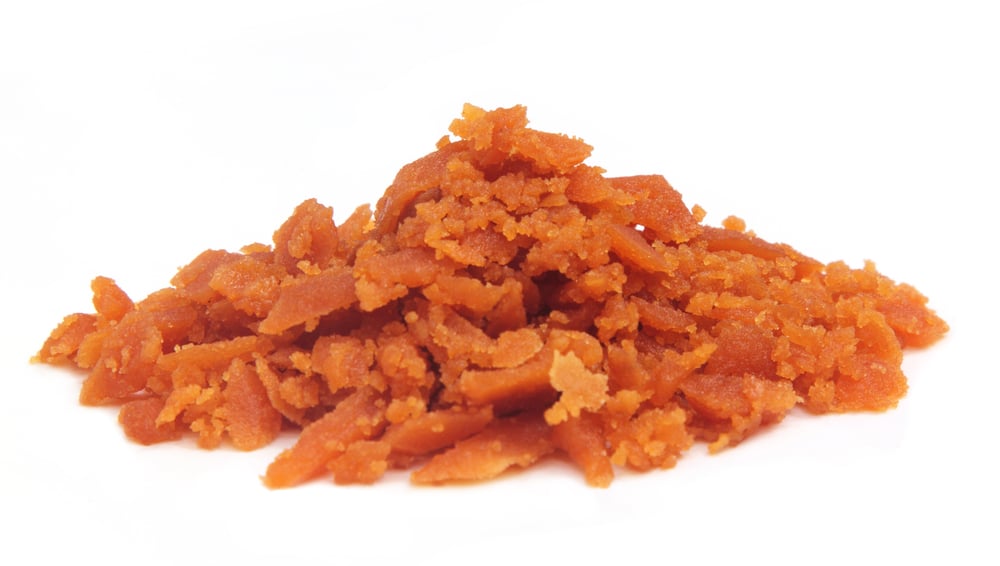
Date sugar is a good option for a coconut sugar replacement when you want to make your recipe healthier. However, since this isn’t technically sugar, it’s not something we recommend you experiment with when inviting guests over.
However, the dehydrated dates that compose date “sugar” are an excellent source of fiber since you’ll be consuming all parts of the fruit. You’ll also receive some potassium, magnesium, and other minerals.
Date sugar is a great substitute for coconut sugar when you’re making marinades and roasted vegetables. You can also add it to dessert; just be aware that the date sugar won’t dissolve, and the dessert could take on a heavier feel.
Another option if you don’t have coconut sugar but like the idea of using fruit to sweeten your desserts is to use half date sugar and half light brown sugar. That offers a nice balance between a healthier option while ensuring that half the sugar dissolves and spreads evenly throughout your batter.
Regardless of how you choose to approach using date sugar as a coconut sugar substitute, you can use it in a 1:1 ratio.
Even if you don’t have date sugar lying around, you can manufacture the sugar from the fruit itself. To do so, bake your pitted and sliced dates at 425 degrees Fahrenheit. After about 15 minutes, let them cool, then run them through a food processor. For best results, add in a pinch of cornstarch.
5. Stevia

Stevia is one of the best coconut sugar alternatives for baking and a drink sweetener. It has its origins in 16th century Paraguay and Brazil.
Even though stevia comes from a plant’s leaves, it doesn’t contain nutrients like coconut sugar. However, it has several benefits, including:
- Few or no calories
- Sweeter than coconut sugar
- It might be a better option for people with diabetes
The glycosides molecules in stevia are what create its sweet flavor. In fact, stevia has as much as 300 times the sweetness of traditional white sugar. For this reason, using stevia as a coconut sugar replacement in a 1:1 ratio will likely be too much.
Therefore, consider adding half the amount of stevia that your coconut sugar recipe calls for and working your way up from there as you taste the sweetness.
Alternatively, you can use ¼ or ½ cup of stevia and the remaining amount using a different type of sugar we covered here.
If you’re working with a light-colored recipe, stevia is the best coconut sugar alternative on this list because it won’t alter the color of your food.
Frequently Asked Questions
Are you still on the fence about using coconut sugar alternatives? We answer some common questions here to help.
Yes, you can. You can use many alternatives, such as light brown sugar and sucanat, that you can apply in a 1:1 ratio when baking. You can also use date sugar for a more whole-food approach to sweetening your baked goods.
Yes, you can use white sugar instead of coconut sugar. However, for a result that more closely resembles coconut sugar, we recommend using light brown sugar. It contains molasses, meaning it’ll have a caramel-like flavor and brown color.
Coconut sugar is healthier than brown sugar because it doesn’t go through as much processing. Therefore, it retains several vitamins and minerals, as well as antioxidants. However, it contains the same amount of sugar per teaspoon as brown sugar.
Coconut sugar is delicious in tea. However, if you don’t have coconut sugar on hand, you can use honey as an alternative.
The sugar derived from the stevia plant is an excellent substitute for coconut sugar. It doesn’t have as strong an impact on blood sugar, and it has a more potent sweetness than regular sugar. Nevertheless, like any sugar, you should use it in moderation.
Related Substitutes:


